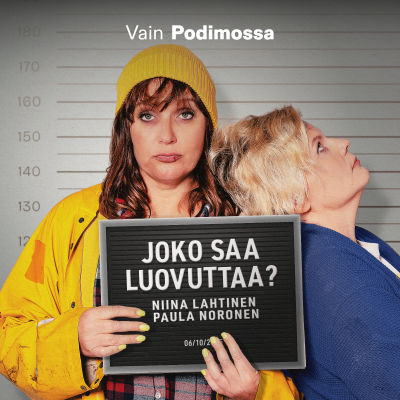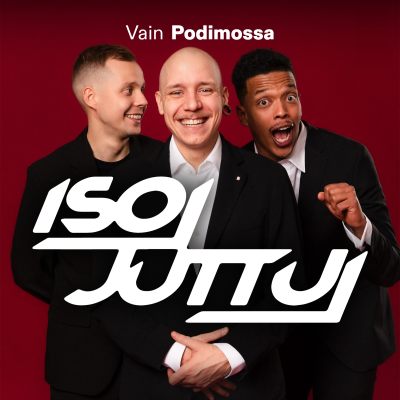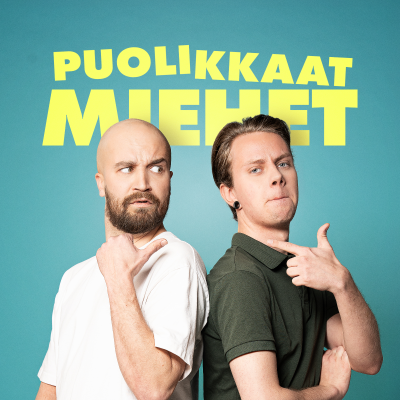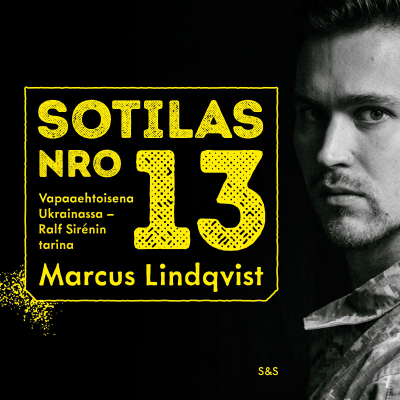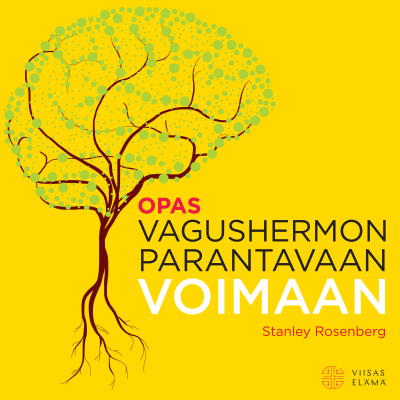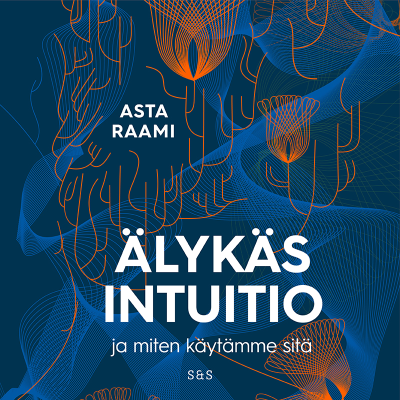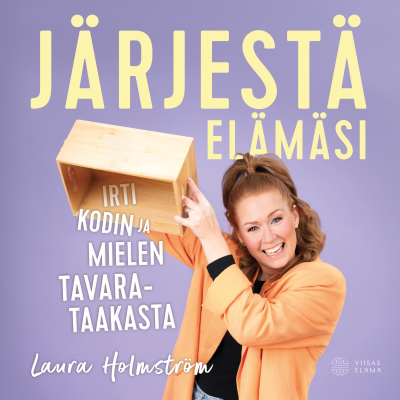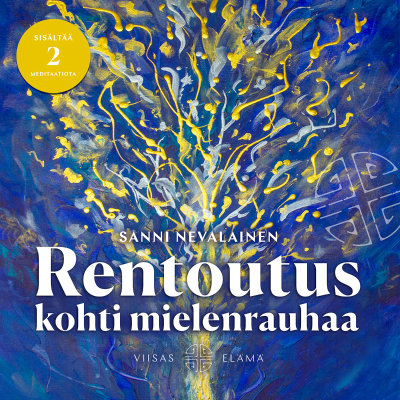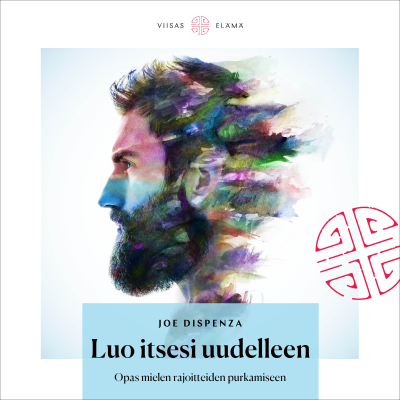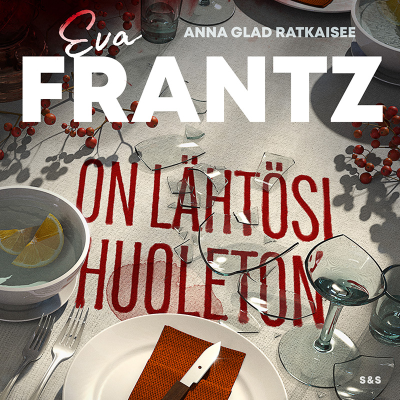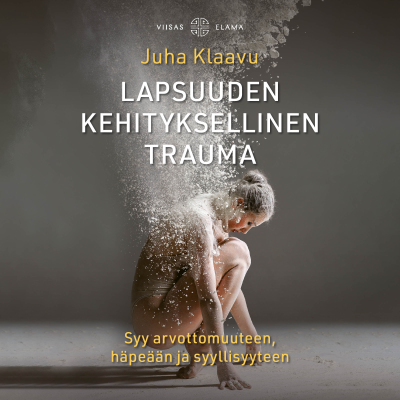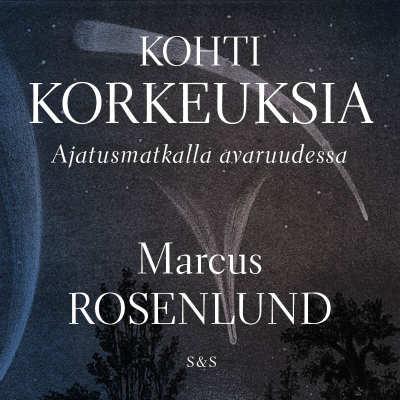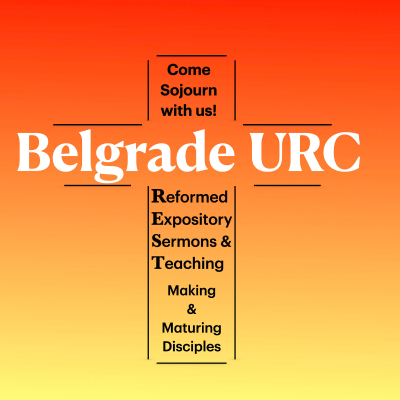
Reformed & Expository Preaching
englanti
Historia & uskonnot
Rajoitettu tarjous
2 kuukautta hintaan 1 €
Sitten 7,99 € / kuukausiPeru milloin tahansa.
- Podimon podcastit
- Lataa offline-käyttöön
Lisää Reformed & Expository Preaching
We are a Bible Believing Reformed church in the Bozeman, Belgrade area. Subscribe to our sermon feed or better yet, worship with us each Sunday! May the Lord’s blessing and peace be upon you.
Kaikki jaksot
727 jaksotThe Conflict Zone: Walking by the Spirit vs. the Flesh (Galatians 5) | Devoted to God Series (Chapter 5)
In chapter 5 of Sinclair Ferguson's "Devoted to God," we confront an unavoidable reality: the Christian life is a battlefield. The moment you became a Christian, you stepped into a war zone where the flesh and the Spirit are locked in mortal combat for your soul. Paul's command in Galatians 5 is both a promise and a call to action: "Walk by the Spirit, and you will not gratify the desires of the flesh." This isn't about trying harder in your own strength. Christian holiness is rooted in what God has already done through Jesus Christ and the gift of the Holy Spirit. Ferguson helps us understand that we live with a foot in two ages. We live in the old age dominated by flesh, sin, and death, and the new age dominated by the Spirit, grace, and life. We explore the biblical pattern of indicative (what God has done) leading to imperative (how we're called to live), and discover five practical principles. This is a battle, but it's one we fight as wounded soldiers, encouraging each other onward and upward, always finding our resources in Christ.
Comforted or Controlled? (John 10:28, 29; LD 1)
Introduction Most things that bring us comfort are only appropriate in proper situations. For instance, a warm blanket, a favorite flannel shirt, a pair of pajamas. Each has its place. You do not wear a blanket or pajamas in public settings. You do not wear an old comfy flannel shirt to a wedding. But the Heidelberg Catechism opens with a striking claim: that there is a single comfort appropriate in every circumstance. In fact, this is a single comfort in life and in death. This raises an honest question: can any comfort truly be that universal? So we look at the claim of Heidelberg Catechism Question and Answer 1. What is our ONLY comfort in life and in death? "I Give Them..” At first glance, Christ's claim to give eternal life sounds more like an imposition than a comfort. If it's not something we opt into, is it really a gift? To answer this, the catechism points us to a hard truth: we are not neutral recipients. Like those enslaved by debt or victims of war, we are slaves. We are either slaves of sin or slaves of righteousness. We are slaves. (Romans 6:18) The catechism reminds us that Christ is a faithful savior and not a tyrannical master. It's the portrait of a redeemer who pays the debt we couldn't pay and frees us from a master, the tyranny of the devil, who sought to destroy us. We learn that the Devil’s marketing pitch for Adam and Eve did not end well. It turns out that it is a good thing that Christ is overbearing, that he overwhelms us with His grace, as He gives us eternal life. This is the gift that we do not naturally want, but the gift that we need to live life to the fullest in this age. Truly, living life for Christ is the highest and greatest thing we can do rather than pursuing our own independence. "They Will Never Perish" This promise seems false. We go to Christian funerals, which means that Christians do die. Is Christ overpromising and underdelivering? When we look deeper into Scripture, we see that "perish" implies something deeper than a mere physical death. In Mark 1:24, Christ encounters demons. They cry out, inquiring if Christ is going to destroy them/perish them. To perish is to be undone, destroyed, stripped of your identity and purpose. It is much more than death. What Christ promises is that the forces that assemble against his people will not succeed. We think of our sin or the sins that tempt us outside of us. We think of Satan and his satanic army. We think of any influence that pulls us from Christ. The assurance is that we will not be undone or overcome. We will never perish. "No One Can Snatch Them” We hear the promise that he knows all the numbers of the hair on our heads. This might sound creepy or overbearing. But when we read this statement in light of Christ as faithful Shepherd, it becomes something else entirely: an assurance that nothing in our lives escapes his notice or his care. He is not the hired hand who flees when the wolf appears. He is the Shepherd who lays down his life for the sheep. The high priestly prayer in John 17 reminds us that he intercedes on behalf of his people. The fourth servant song promises that: “yet he bore the sin of many, and makes intercession for the transgressors.” So when Christ promises that no one will snatch them out of the Father’s hand, he is assuring us no one will seize us from our shepherd. The "snatching" language describes a forcible seizure against one's will. Christ's answer is that even this cannot prevail. The same one who prayed for his disciples on the eve of the cross still intercedes for those who believe through their word, two thousand years later. We cannot see Christ as a creepy stalker. Rather, we need to see him as the empowering savior who protects his people. He does not empower us to live for ourselves, but to live for him. It is only as we live in communion with our Savior that we truly have life. Conclusion So, can there be only one comfort that is appropriate in every situation, season, and circumstance? Yes! The catechism's opening answer assures us of our value. Our value doesn't rest in our accomplishments, our reputation, or our self-determination. It rests on the fact that we bear the image of God. Our value rests in the fact that Christ has redeemed us. Our joy is living as slaves of righteousness as we walk in the Holy Spirit. We have been redeemed by Christ. The communion we once pushed away has been restored because the Good Shepherd sought us. He shepherds us through this life, through death itself, and into the age to come. The comfort of belonging to Christ isn't a soft sentiment for easy days. It is the one comfort sturdy enough for every circumstance because his sheep will not be undone. His sheep will never perish. His sheep will never be snatched. Let us proceed in the confidence that our Lord is our definitive redeemer.
Procrastinator or Strategic Planner?(Esther 5:1-14)
Introduction The book of Esther is a story of wonderful storytelling. It has drama and characters that operate in the grey. The assurance is that even when God sends his B team, his promises do not fall flat. As we enter chapter 5, we meet Esther in a position of desperate urgency: the Jewish people face annihilation, and the queen herself has called a three-day fast on her behalf. We were left hanging with a question. Was Esther seeking to save her own life, or was she genuinely turning to God for wisdom and divine direction? Esther has been rather passive. She has been instructed and silent. When she speaks, she seems conflicted. How is the Lord going to win his cosmic battle against the serpent with these people? We need the precision of the Navy Seals at this point, and not indifferent people who have compromised their moral integrity. Esther’s Banquet: A Plan Put Into Motion (vv. 1–2) Notice how deliberately the narrative slows as Esther prepares to act. The text does not simply say, "On the third day, Esther went to the king." Instead, every detail is described with weight and intention: Esther puts on her royal garments, walks to the inner court, and positions herself where the king can see her. This pacing is intentional. The intention is to slow down the action. It makes the reader feel the weight of the moment. It also builds suspense. Will the king let her speak, or will she be the first to be executed? Her dawning the royal garb pays off. The king has not called for her in 30 days, but the king still cares for her. He does not simply ask what she wants, but he asks, “What seems to be troubling you?” There is compassion and concern for Esther’s well-being. This is only after the king invites her into his presence and extends the scepter to grant her audience. She is addressed as Queen Esther. Now she has the chance to act as queen. Esther's Request: The Banquet and the Strategy (vv. 3–8) When the king offers Esther up to half his kingdom, her request is surprisingly modest. In fact, it is dangerous. She does not ask for the Jews to be saved, nor seek a place of refuge for the Jewish people. Instead, she invites the king to a banquet with Haman. This seems like a missed opportunity to the pragmatic observer. Why not act now, while the iron is hot? But this is precisely where Esther's wisdom shines. She is not rushing. She is calculating. The invitation demonstrates that Esther is moving the king where she wants him. She is also able to size up Haman. Esther might perceive something in Haman that we did not perceive. Most likely, Esther is using this occasion to study him. She needs to see him face-to-face. When the king again offers her up to half his kingdom at the banquet, and she asks for a second banquet, she is not stalling out of fear. She is pumping up Haman’s ego. She also knows that in this kingdom, the king is easily manipulated by his advisers. Persia prides itself on the fact that its decrees are never overturned. Esther is thinking on a deeper level. She is an instrument God is using, and we need to see the wisdom God has brought to her attention after three days of fasting. Esther’s Challenge: Haman's Pride and the Cosmic Battle The scene shifts to Haman, who leaves the first banquet elated. He has everything: wealth, sons, prestige, the king's signet ring. He is on top of the world because not only did he have an exclusive banquet today, but another one tomorrow. This man has it all. It is rather funny that he is threatened by a man who cannot meet with the king and has to send secret messages to his cousin, who is currently the queen. Haman cannot deal with Mordaci showing him such disrespect. He calls his advisors together and his wife. His wife hatches a plan in the midst of his advisors. Her plan for Haman is to build a pole 50 cubits high (roughly 70 feet, an exaggerated height) and impale Mordecai on it before the next banquet. The exaggeration in the text is not careless hyperbole. We need to clearly see that this is a literary device that communicates the depth of Haman's hatred and the grotesque extremity of his anger. Clearly, this is not a personal grudge, but a cosmic battle that is taking shape. We might be overwhelmed. However, the dark humor of the narrative is impossible to miss. A kingdom that issued a decree declaring that no woman would dominate its men is now being led around by a queen who is dictating two banquets. Haman, the second most powerful man in the empire, receives his orders from his wife. The decrees of Persia, written in stone, are not being followed. Remember how this decree went out to every man in their own language? Well, the seed of the serpent might declare it victory, but clearly the Lord is subtly communicating that the serpent seed might say check, but it cannot say checkmate. The Lord’s decrees stand. Where are Persia’s decrees today? Conclusion The deeper question driving the Book of Esther is not merely whether the Jewish people will survive. It is whether the Lord will triumph over the seed of the serpent. It is not enough that God's people simply live, but they need to triumph. If Esther had acted purely out of pragmatism at the first banquet, the people might have been preserved, but the Lord would have lost the cosmic war. The story, at this stage, is assuring us: God is still at work. He is silent, but his decree will stand. How clearly we see this as Christ has been raised from the dead. Let us proceed with confidence that our Lord is a shield and defender. He will finish what he started because His decrees stand. Let that be our confidence as we walk in Christ.
A Different Kind of Death: Understanding Union with Christ (Romans 6) | Devoted to God Series (Chapter 4)
In this episode of our series on Sinclair Ferguson's "Devoted to God," we examine one of the most crucial passages in the New Testament: Romans 6. Ferguson guides us through Paul's explosive answer to a dangerous question: if grace covers all sin, why not keep sinning? Discover the three dimensions of our union with Christ—eternal, covenantal, and existential—and what it means that we were crucified, buried, and raised with him. Learn how baptism isn't merely a sign of our faith, but God's declaration of what he has done: delivering us from death to life. We explore what it means to have died to sin's reign, to live under grace rather than law, and to embrace the daily rhythm of the baptized life through four powerful commands from Romans 6. Tags: Romans 6, Union with Christ, Baptism, Sinclair Ferguson, Sanctification, Gospel Identity, Reformed Theology, Christian Living, Paul's Epistles, Belgrade URC
Elite Doctrine or Rich Comfort? (John 3:1-21; COD Conclusion)
Introduction The Canons of Dort is a theologically rich document that addresses critical questions about God's sovereignty and human free will. While it can unfortunately fuel argumentative "cage phase" theology, its true purpose is far more pastoral: to provide genuine consolation in knowing that God desires, chooses, and gives life to His people. This teaching isn't meant to create theological elites obsessed with debate, but rather to lead believers toward Scripture, submission to God's Word, and ultimately to His glory. The Canons address two extremes. The two extremes are hyper-Calvinism and Arminianism. Both of these extremes rob believers of assurance and leave them chasing their tails without real spiritual progress. Significant Observation - The Tension Between God's Universal Call and Particular Work The Canons of Dort do not aim to divide the church but to address real theological problems with precision. The challenge is that the Canons desire to remain helpful rather than overwhelming people with details. It reminds us that theological work should be done "with a view to the glory of God's name, holiness of life, and comfort of anxious souls.” Our temptation is to make a name for ourselves or win arguments. This creates an important tension visible in John 3: there's clearly a universal, sincere call in John 3:16 where God loves the world and offers eternal life to "whoever believes.” This has to be read in light of verses 1-15. John 3:1-15 makes it explicit that one will not respond to the Gospel without being born again. This is why Nicodemus struggles with the reality that one must be "born of the Spirit" to even see the kingdom. Both truths stand: the general call is real, and the particular application of Christ's work to God's people is also real. Like Nicodemus, an intelligent Pharisee who knew the Torah by heart, we must wrestle honestly with how these fit together. We must submit to Scripture (ministerial reasoning) rather than forcing Scripture into our philosophical boxes (magisterial reasoning). The complexity is real, and we're called to accept both truths even when we can't fully reconcile them with human logic. A Significant Freedom - The Spirit Works Like the Wind When Christ tells Nicodemus that the Spirit "blows where it wills" like the wind, He's making a crucial point: we cannot control, predict, or harness God's work. The Greek/Hebrew word for wind and spirit is the same (pneuma), creating an intentional wordplay. Just as we don't fully understand or control the wind despite our scientific advances, we cannot determine when or how the Spirit will work in regeneration. We cannot control the wind. We cannot control the Spirit. This is both humbling and liberating for ministers and believers alike. We cannot twist God's hand or guarantee results through the perfect methodology or sermon. God normally works through the preaching of the gospel in the context of the church, but even this has exceptions. We immediately think of the thief on the cross, who likely never attended synagogue, given his lifestyle. The reference to being "born of water and the Spirit" points back to Old Testament promises in Ezekiel 36:27-28 and Jeremiah 31:31 about God giving His people new hearts. Christ rebukes Nicodemus as a "teacher of Israel" for not recognizing these prophetic promises. Christ is not primarily using water to teach about baptism, forcing God's hand, but about the Messiah as the one who confirms the new age. Christ is confirming the covenantal promises as predicted by Ezekiel. So, he is upset because Nicodemus should know this prophecy. He should see that Christ is the confirmation of God’s promises. A Significant Consolation - Our Hope Rests in Christ, Not Ourselves Here's where the pastoral beauty of the Canons shines through. God's call in passages like John 3:16 and Matthew 11:28 ("Come to me, all you who are weary") is absolutely sincere. Christ is issuing a genuine invitation to all people to believe in Christ. We cannot know how many will be saved, and we shouldn't limit God's work. The call goes out to everyone. Yet there's profound consolation in knowing that when we do bow the knee to Christ, it's because we've been born from above by the Spirit. In moments of struggle, doubt, and anguish, we do not hope in the strength of our faith or our ability to persevere. Our confidence rests in Christ, in His Spirit, and in His power to uphold us until the end. God doesn't just dangle an unattainable carrot; He guarantees that the seed of the woman will enter His rest. When Christ teaches Nicodemus that His people will truly respond in faith through the Spirit's power, then we can be assured that we believe in Christ’s power and not our own. Our confidence should never be in ourselves. Conclusion The Canons of Dordt is honest in that it paints an unflattering picture of humanity: we're wretches who hate God and don't want to turn to Him. But it simultaneously reveals God's astounding mercy. God restrains sin, publishes the gospel, gives His Son, and calls all to believe in Christ. The assurance is simple yet profound: if you take hold of Christ by faith, He is your Redeemer and Savior. You have life in Him. Your sins are taken away in Him. We're not believing in our faith or in ourselves. We believe in Christ, who is the source of hope and gives the gift of faith. This is the "yes and amen" from the Canons: our ultimate consolation is found in our Lord and Savior Jesus Christ. Let us walk in him believing we will overcome by His Power.
Valitse tilauksesi
Rajoitettu tarjous
Premium
Podimon podcastit
Lataa offline-käyttöön
Peru milloin tahansa
2 kuukautta hintaan 1 €
Sitten 7,99 € / kuukausi
Premium
20 tuntia äänikirjoja
Podimon podcastit
Lataa offline-käyttöön
Peru milloin tahansa
30 vrk ilmainen kokeilu
Sitten 9,99 € / kuukausi
Premium
100 tuntia äänikirjoja
Podimon podcastit
Lataa offline-käyttöön
Peru milloin tahansa
30 vrk ilmainen kokeilu
Sitten 19,99 € / kuukausi
2 kuukautta hintaan 1 €. Sitten 7,99 € / kuukausi. Peru milloin tahansa.


